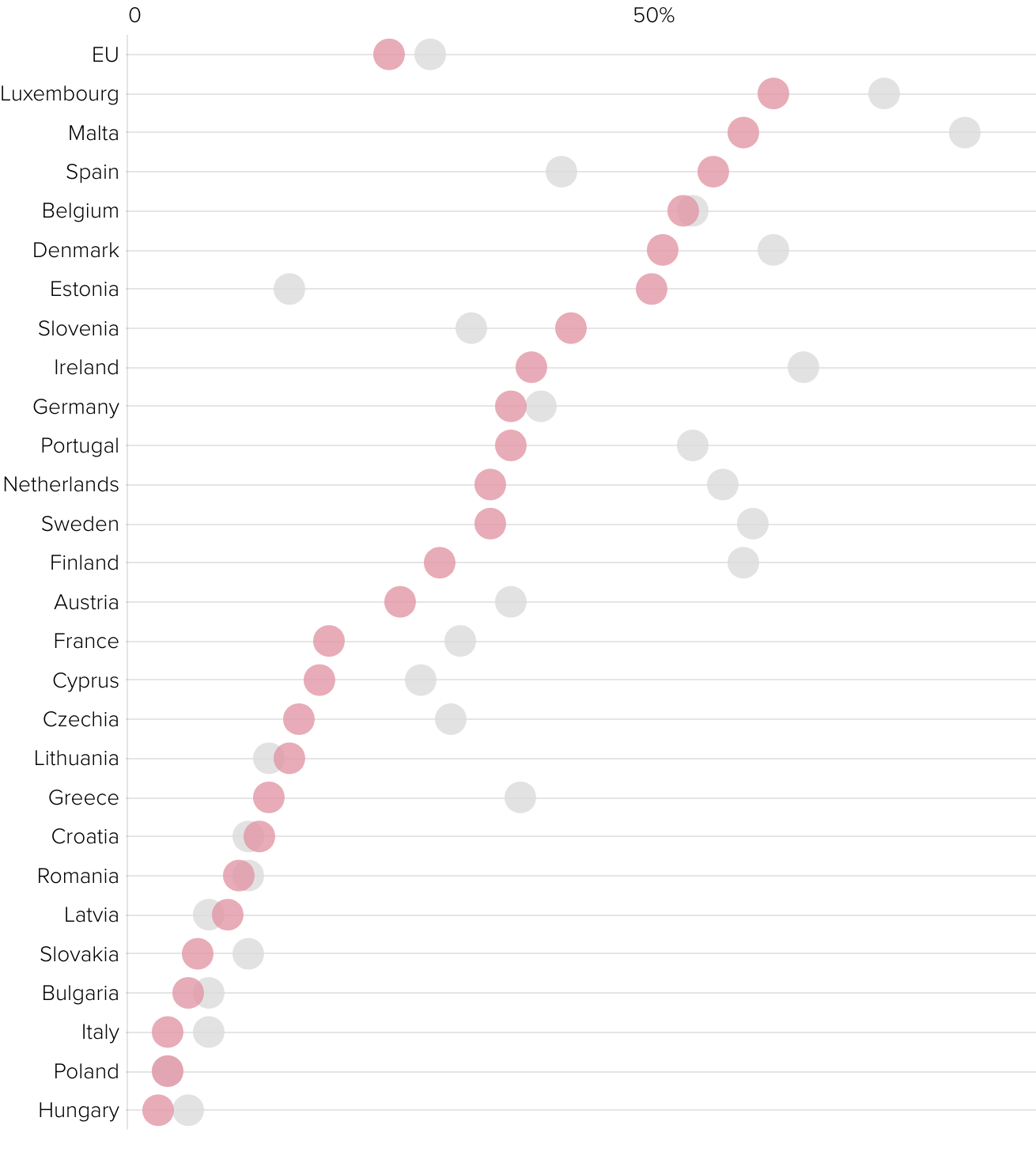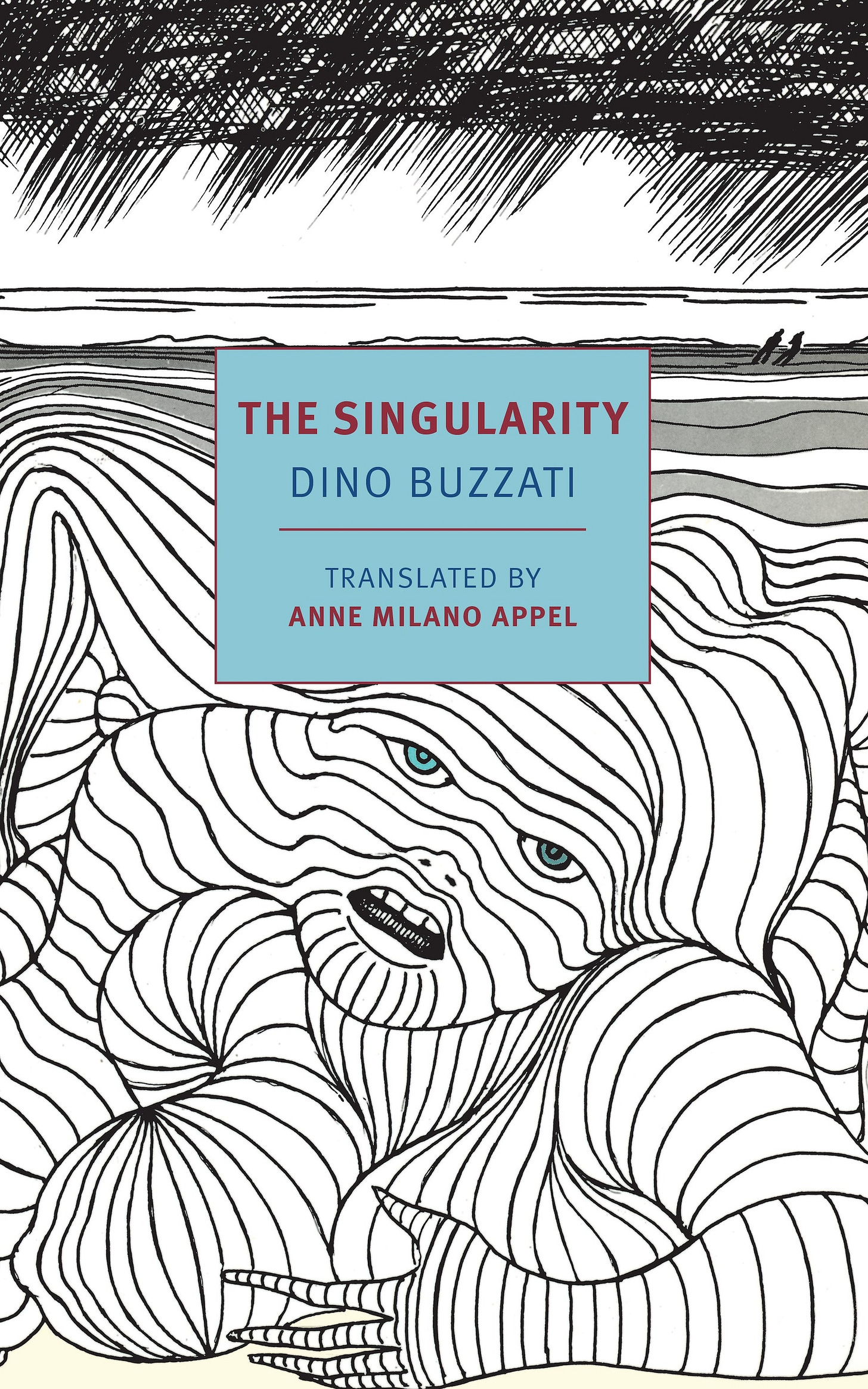One of the things I try and do in this newsletter — however modestly — is to hold power to account. Sometimes that means reporting, analysis, op-ed style commentary. Sometimes that means drawing attention to insidious political manoeuvres that pass beneath the news radar. Well, a few days ago one such incident took place when Italy refused to sign an EU declaration on the World Day Against Homophobia, Transphobia, and Biphobia. While the government has previously supported a generic pledge against “hate speech” I was sorry to see it held back from actually operationalising any real commitment through three perfectly reasonable measures (increasing penalties for discrimination, introducing a new national strategy to improve the rights of LGBTQ+ people and agreeing on a new EU Commissioner for Equality). Italy’s Family Minister, Eugenia Roccella, explained to press that the administration had made its decision based on disagreement with an “ideological constraint” of the EU document, specifically a clause reading “freedom to be who you want to be.” According to the Minister such a framing constitutes a “denial of reality,” that “dominant sexual affiliation cannot be changed.” Roccella also accused the EU of trying to “abolish men and women” and reiterated her commitment to the state management of Italy’s birth rate. Does this sound like a tolerant, democratic centre-right perspective to you? Of course not. By refusing to take violence seriously, by galvanising populist rhetoric against queer people and by distorting the question of demographics for political ends, this government has made it perfectly clear yet again that LGBTQI+ people will continue to live as denizens in today’s Italy. Che schifo.

I’m generally sceptical of political celebrities but if I had to choose one then Mimmo Lucano - ex-mayor of Riace - does seem relatively OK. Back in 2004 Lucano, then sindaco of the small Calabrian town, decided to actively welcome immigrants to the community by offering housing, financial support and legal services to help individuals settle in the area. Throughout the 00s his initiative grew to the point that human rights groups even started to talk about “the Riace model” as a possible case study for the future of integration. Since then, the sheen has worn off somewhat. Lucano has had to fend-off corruption allegations in court, and his policies on migration have got him into trouble with consecutive governments. Some ministers, like Matteo Salvini, have even accused him of aiding people trafficking. Now, ahead of the June EU elections, Lucano is planning a comeback, and he’s running for both local and European office. POLITICO sent a reporter to follow his campaign, and while the frame is a bit dodgy in parts, the piece provides a good sense of the feeling on the ground. As Daniel Yaboah, the town’s garbage collector, neatly summarizes: “After five years without Mimmo as mayor, the people have understood the difficulties facing this town,” he said. “The lion’s share of people now understand that only he can save it.” Click here to read the full report.
I haven’t posted much here about Gaza. This is, after all, a newsletter largely about Italy. More importantly, the confined and compressed space of these updates is – I worry – too fragile to address a topic that is so overwhelmingly coopted by Islamophobic and antisemitic agendas alike. There are, however, two unambiguous points to make: 1) there is no justifying Israel’s ongoing massacre of civilians in Palestine 2) for this reason democracies need to take urgent action to challenge that state’s actions. Local Florentine readers will perhaps be aware of the encampment in ex-Piazza San Marco [Shireen Abu Akleh] which I attended last week with colleagues from the European University Institute to show my support for four specific demands on how the institution could act [here]. Around the world, authorities have violently repressed similar encampments. In the case of Florence, I’m pleased to say, contrary to all expectation, the President of the EUI, Patrizia Nanz, has offered a dialogue and has even acted on some of the demands. You can learn more about the Florentine movement here. But I’d especially direct readers to Nanz’s op-ed in The Guardian where she draws lessons from the Tuscan experience that are relevant for universities and for debates about democratic protests worldwide. In a climate of dangerously impoverished discourse, this is an eloquent and important contribution to the public debate. A rare feat indeed.
Arts and culture: The Age of Sentient Machines
When you think of Italian graphic novelists, I’d bet one name and one name only springs to mind: Michele Rech, aka Zerocalcare. Now, I love Zerocalcare’s work, don’t get me wrong. But it is a bit unfortunate that his popularity so eclipses hundreds of other talented young artists; and there’s clearly the need for a correction in balance here. Well, in that spirit, I want to direct readers towards Margherita Tramutoli — better known as ‘La Tram’ — a prolific artist who, like Rech, strives to foreground sociopolitical concerns in her work. Tramutoli has worked in editorial jobs at l’Espresso, Jacobin Italia, Salani and Marsilio among others, she’s written children's books (L’Ecologia spiegata ai bambini, Beccogiallo) and she’s even set up a feminist collective called Moleste which is focused on combatting sexism in the arts. Her new book ‘Finché l’ultimo canta ancora’ is a free pdf published with Emergency which tells the story of Afghan womens’ lives two years after the Taliban capture of Kabul. It’s a gesture of solidarity, a work of imagination and empathy and a call for human rights. Check out an extract below click here to read the full comic and make sure to follow La Tram on Instagram.
I’ve got to say The New York Review of Books classics series is really knocking it out the park this year as far as Italian translated fiction goes: following on from Pasolini and Natalia Ginzburg the publisher’s latest ITA release is an English language rendering of Dino Buzzati’s The Singularity by Anne Milano Appel. This short novel, first published in 1960, is one of the author’s more outlandish experiments; a kind of surrealist sci-fi thriller about a knackered university professor who is mysteriously summoned to accept a top-secret mission at a research centre, isolated from the world, where he is tasked with investigating the future impact of AI on society. I’m a big fan of Buzzati, but curiously I’d never even heard of this story until the translation popped up on my feed this week. So if you’re into Don DeLillo-esque postmodern-tinged speculative fiction (or simply share my own nerdy anthropological-historical interest in what a 1960s Italian take on our algorithmic present looked and looks like) this might be up your street. Buy the book straight from the publisher here.
Recipe of the week: Chargrilled marinated vegetables with basil oil and mozzarella
Chargrilled. Marinated. Vegetables. Doesn’t sound too complicated, does it? Thinly slice some zucchini, some aubergine, a bit of tomato and whack it all on a griddle pan. Season and eat. Simple. There are, however, a few tricks to preparing this summertime staple that can elevate your weeknight meals to new dimensions. Hence this week’s ‘recipe.’ Over the past weeks I’ve been trying to perfect my own griddling process and I have to say by now I’ve accrued a few tips: adding onion, leeks or fennel to your mix is a good way of adding some complexity. Doubling the salt you think you need is, generally, a good way of eeking as much umami as possible from the vegetables (though it might not be so good for blood pressure). Marinating the whole lot overnight in the fridge with plenty of garlic is another 100% surefire route to success in my book. There are myriad ‘recipes’ one might want to use for further guidance, but for my money Jamie Oliver is as good as it gets in this instance. Start with his instructions, improvise according to your own taste and serve with some decent mozzarella or burrata for the perfect summer lunch. Here’s the link.
I’m Jamie Mackay, a UK-born, Italy-based writer, working at the interfaces of journalism, criticism, poetry, fiction, philosophy, travelogue and cultural-history. I set up ‘The Week in Italy’ to make a space to share a regular overview of the debates and dilemmas, innovations and crises that sometimes pass under the radar of our overcrowded news feeds, to explore politics, current affairs, books, arts and food. If you’re a regular reader, and you enjoy these updates, I hope you’ll consider becoming a supporter for EUR 5.00 per month. I like to think of it as a weekly catch-up chat over an espresso. Alternatively, if you’d like to send a one-off something, you can do so via PayPal using this link. Grazie!







